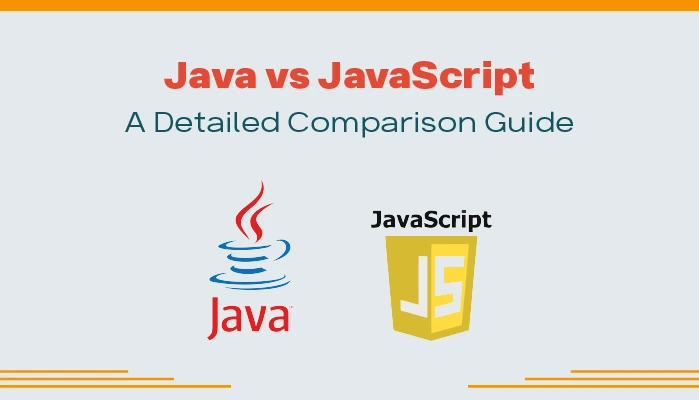When building or upgrading a PC, picking the right processor is key. AMD and Intel are the two main choices, each with different strengths and price points. Intel, founded in 1968, is known for its reliable and high-performing CPUs. AMD established a year later, used to be seen as a budget option but now offers strong competition with its Ryzen series. We will help you choose from AMD vs Intel processor which is better for your PC including performance, pricing, and efficiency. This article will break down the main differences between AMD and Intel processors, let’s dive in.
History of AMD and Intel
Before diving into performance comparisons of AMD vs Intel, it is essential to understand the historical context of these two giants. So, Intel founded in 1968, has been a leader in the processor market for a long time. Their processors are often the first choice for many PC users. Especially for businesses and gamers, because they are reliable and perform well.
On the other hand, AMD (Advanced Micro Devices) was founded in 1969, a year after Intel, and has always been Intel’s main competitor. For a long time, AMD was seen as the underdog, offering processors at lower prices. But in recent years, especially with their Ryzen series. AMD has become a strong competitor, matching Intel in both performance and value.
AMD Processor vs Intel Key Differences
Let’s look at the critical differences between AMD vs Intel to help you understand their strengths and weaknesses.
1. Performance
Performance is one of the most important things to consider when choosing a processor, especially for people like gamers, video editors, and software developers. Both Intel and AMD offer powerful processors, but each is better in different ways.
AMD Ryzen Processors
- Multi-core Performance: AMD Ryzen processors are great at handling multiple tasks at once. Which makes them ideal for video editing, 3D rendering, and multitasking. They generally have more cores and threads than Intel processors at the same price, giving them an edge in these areas.
- Gaming: Early Ryzen processors weren’t as good as Intel for gaming. But the newer Ryzen CPUs, like the Ryzen 5000 series, have improved a lot. They now offer excellent gaming performance, especially in newer games that use multiple cores.
Intel Processors
- Single-core Performance: Intel has usually been better at single-core tasks. Which is also important for games and older programs that don’t use many cores.
- Overclocking: Intel processors are easier to overclock. So people who like to push their CPU for extra performance often choose Intel.
- Gaming: Intel is still slightly better than Ryzen in some games that need higher speeds and single-core power. But AMD’s Ryzen 5000 and 7000 series have closed the gap a lot.
2. Pricing
When looking at AMD vs Intel, price is another important factor. AMD processors have usually been cheaper than Intel, but as AMD’s performance has improved, the price difference has gotten smaller.
AMD Ryzen
- Price-to-performance ratio: AMD’s Ryzen processors give great value for money. You usually get more cores and threads for a lower price than Intel. For example, the Ryzen 7 5800X performs like Intel’s Core i7 but costs less.
- Budget Options: AMD leads in the budget market with its Ryzen 3 and Ryzen 5 processors, by offering good performance for gamers and creators who want to save money.
Intel
- Premium Pricing: Intel processors usually cost more than AMD, especially in the mid to high-end range. This higher price reflects Intel’s strong reputation and past performance.
- Entry-level: Intel has cheaper options like the Core i3 and Pentium series. But AMD generally offers better performance for the same or lower price.
3. Power Consumption and Efficiency
Energy efficiency is another key area where Ryzen vs Intel processors differ.
AMD Ryzen
- 7nm Architecture: AMD’s newest Ryzen processors use a 7nm design, which makes them more energy-efficient. This means they produce less heat and use less power, which is good for both desktops and laptops.
- Eco Mode: AMD’s Ryzen processors also have an “Eco Mode” that helps save power while keeping performance nearly the same.
Intel
- 10nm Architecture: Intel’s latest processors, like the 11th and 12th Gen, use a 10nm design. Which is not as efficient as AMD’s 7nm. So, this means Intel CPUs use more power and generate more heat.
- TDP: Intel processors usually have higher thermal design power (TDP). So they need better cooling to stay cool and perform well, especially when overclocked.
4. Integrated Graphics
When you are deciding between AMD vs Intel, it is good to think about how well their built-in graphics work. These are important for people who don’t have a separate graphics card. They also matter for casual gamers and people who mainly use their computers for work and browsing the web.
AMD Ryzen with Radeon Graphics
- APUs (Accelerated Processing Units): AMD’s Ryzen processors with Radeon graphics. The Ryzen 5 5600G and Ryzen 7 5700G, are great for light gaming and watching media. They also provide much better-integrated graphics performance compared to Intel’s options.
Intel UHD and Iris Xe Graphics
- Intel’s Integrated Graphics: Intel’s integrated graphics, especially the Iris Xe series, have gotten better. But they are still not as good as AMD’s APUs. They work fine for video playback and light gaming, but AMD’s Radeon graphics are better.
5. Compatibility and Upgrade Path
When buying a computer processor between AMD Ryzen vs Intel, it is important to think about whether it will work with your computer and if you can easily upgrade it in the future.
AMD Ryzen
- AM4 Socket: AMD has used the same AM4 socket for many generations. So you can upgrade your processor without buying a new motherboard. This saves money and makes upgrades easier.
- Future-proofing: AMD’s use of the same socket for a long time means their Ryzen processors are a better choice if you want to upgrade your system later.
Intel
- Socket Changes: In comparison to AMD vs Intel, Intel often changes its CPU socket. For example, moving from LGA 1200 to LGA 1700 with the 12th Gen Alder Lake CPUs means you might need a new motherboard when upgrading.
- Platform Stability: Even with frequent socket changes, Intel usually offers a more stable platform for high-end users, with better support for PCIe lanes and memory overclocking.
Intel vs Ryzen Which Processor is Better for Gaming?
For gamers, the choice between Intel vs Ryzen processors can be tricky. Both offer excellent gaming performance, but their strengths vary depending on the specific game and setup.
- High-end Gaming: If you are building a top-end gaming PC with powerful GPUs like the NVIDIA RTX 4090 or AMD RX 7900 XTX. Both Intel’s Core i9 and AMD’s Ryzen 9 processors are excellent. The choice will depend on game optimizations and cost.
- Mid-range Gaming: For budget gamers, AMD’s Ryzen 5 and Intel’s Core i5 are both good. Intel might be better in games that need strong single-core performance. But Ryzen CPUs are better for multitasking, which is useful for streaming while gaming.
- Budget Gaming: For a budget gaming PC, AMD’s Ryzen 3 processors offer better value than Intel’s Core i3. AMD’s integrated graphics are also better than Intel’s, making them a good choice for gamers who don’t have a separate GPU.
Ryzen Processor vs Intel Which is Better for Productivity?
For content creators, developers, and professionals who need a processor for tasks like video editing, 3D rendering, or software development, the choice between AMD vs Intel becomes clearer.
- Multi-threaded Performance: AMD Ryzen processors are better for tasks that use many cores. As well as the Ryzen 9 5950X with 16 cores and 32 threads, which outperforms Intel’s Core i9-11900K. This makes Ryzen better for heavy workloads.
- Single-core Performance: For software that doesn’t use many cores, like some CAD programs or Adobe Photoshop. Intel’s processors have a slight advantage in single-core tasks. But AMD’s latest Ryzen processors are getting closer to Intel in this area.
Generational comparison of AMD vs Intel
Here is a straightforward chart that compares AMD and Intel CPUs across different performance levels, from basic to top-of-the-line models:
| Aspects | AMD Ryzen 3 | Intel Core i3 | AMD Ryzen 5 | Intel Core i5 | AMD Ryzen 7 | Intel Core i7 | AMD Ryzen 9 | Intel Core i9 |
|---|---|---|---|---|---|---|---|---|
|
Performance |
Good for basic tasks |
Good for basic tasks |
Better for multitasking |
Better for multitasking |
High performance |
High performance |
Top performance |
Top performance |
|
Cores/Threads |
4 cores / 4 threads |
4 cores / 8 threads |
6-8 cores / 12-16 threads |
6-12 cores / 12-20 threads |
8-12 cores / 16-24 threads |
8-16 cores / 16-32 threads |
12-16 cores / 24-32 threads |
10-24 cores / 20-48 threads |
|
Clock Speed |
Moderate |
Moderate to high |
High |
High to very high |
Very high |
Very high |
Top speed |
Top speed |
|
Integrated Graphics |
Generally included |
Usually included |
Sometimes included |
Sometimes included |
Sometimes included |
Sometimes included |
Not included |
Not included |
|
Price |
Budget-friendly |
Budget-friendly |
Mid-range |
Mid-range |
Higher |
Higher |
Premium |
Premium |
|
Power Consumption |
Lower |
Lower |
Moderate |
Moderate |
Higher |
Higher |
High |
High |
|
Best For |
Everyday use |
Everyday use |
Gaming and productivity |
Gaming and productivity |
High-end gaming, content creation |
High-end gaming, content creation |
Extreme performance tasks |
Extreme performance tasks |
Still confused about what to choose? Read out the next section to make an informed decision of choosing between AMD and Intel.
Which Processor is Better, Intel or AMD?
Now that we’ve looked at AMD vs Intel from different angles, it is time to tackle the big question on everyone’s mind: Which processor is the better choice?
Advantages of AMD Ryzen
- Better Multi-threaded Performance: AMD Ryzen processors have more cores and threads at each price level. Which is making them better for tasks like video editing and multitasking.
- Superior Value for Money: AMD CPUs usually offer more performance for the price, making them a good choice for those on a budget.
- More Efficient: Ryzen processors use less power and produce less heat. Because they are built on a 7nm design, making them more energy-efficient.
- Better Integrated Graphics: AMD Ryzen processors with Radeon graphics provide better performance without a separate GPU compared to Intel’s options.
- Future-proofing: AMD’s Ryzen processors use the same socket for a long time. So you can upgrade your CPU without needing a new motherboard.
Advantages of Intel Processor
In conflict of AMD vs Intel, Intel has the advantage of superior single-core performance, better power efficiency, integrated graphics, and many more.
- Superior Single-core Performance: Intel processors are better for apps that don’t use many cores. This makes them ideal for specific tasks that need strong single-core performance.
- Better Overclocking Capabilities: Intel processors are easier to overclock. So, users who want to push their CPU for extra performance often choose Intel.
- Integrated Graphics Improvements: Intel’s Iris Xe graphics have improved a lot. However, they are still not as good as AMD’s integrated graphics.
- Stable Platform for High-end Users: Intel offers better support for advanced features like PCIe lanes and memory overclocking, making it a great choice for high-end users.
Also Read: What is the Difference Between Java and Java Script?
Conclusion
In conclusion, choosing between AMD vs Intel processors comes down to what you need. AMD Ryzen is great for multitasking, offers good value, and is more energy-efficient. Intel processors are better for tasks that need strong single-core performance and are easier to overclock. Both brands are good for gaming and professional work, so your choice will depend on your budget, what you need from your PC, and how you plan to upgrade in the future. Knowing the pros and cons of AMD and Intel will help you pick the best CPU for your PC.
Frequently Asked Questions (FAQs)
Q. Is AMD Ryzen 7 better than Intel i7?
Ans. The AMD Ryzen 7 and Intel Core i7 are both great for gaming and productivity. The Ryzen 7 usually has more cores and threads, which is better for tasks like video editing and 3D rendering. But Intel’s Core i7 might be a bit better for single-threaded tasks and some games.
Q. Why is AMD cheaper than Intel?
Ans. AMD used to price its processors lower than Intel to attract more customers when Intel was the top choice. Now, with their Ryzen processors, AMD offers high performance at competitive prices. It also makes them a good option for those on a budget. AMD’s lower market share and focus on value help them keep prices down without losing performance.
Q. Which lasts longer, Ryzen or Intel?
Ans. Both AMD and Intel processors are made to last for many years with normal use. So it is hard to say one lasts longer than the other. AMD’s Ryzen processors might stay relevant longer because they use the same socket for a longer time and have more cores. Which helps with future software that uses more threads.

Himanshu Verma is a highly competent Full-stack Web Developer with a strong passion for both coding and writing. His expertise shines through in his engaging blogs and articles, where he cover a wide array of topics, from web development to the latest tech trends. Follow along as he fearlessly navigate the ever-evolving world of technology and beyond!




